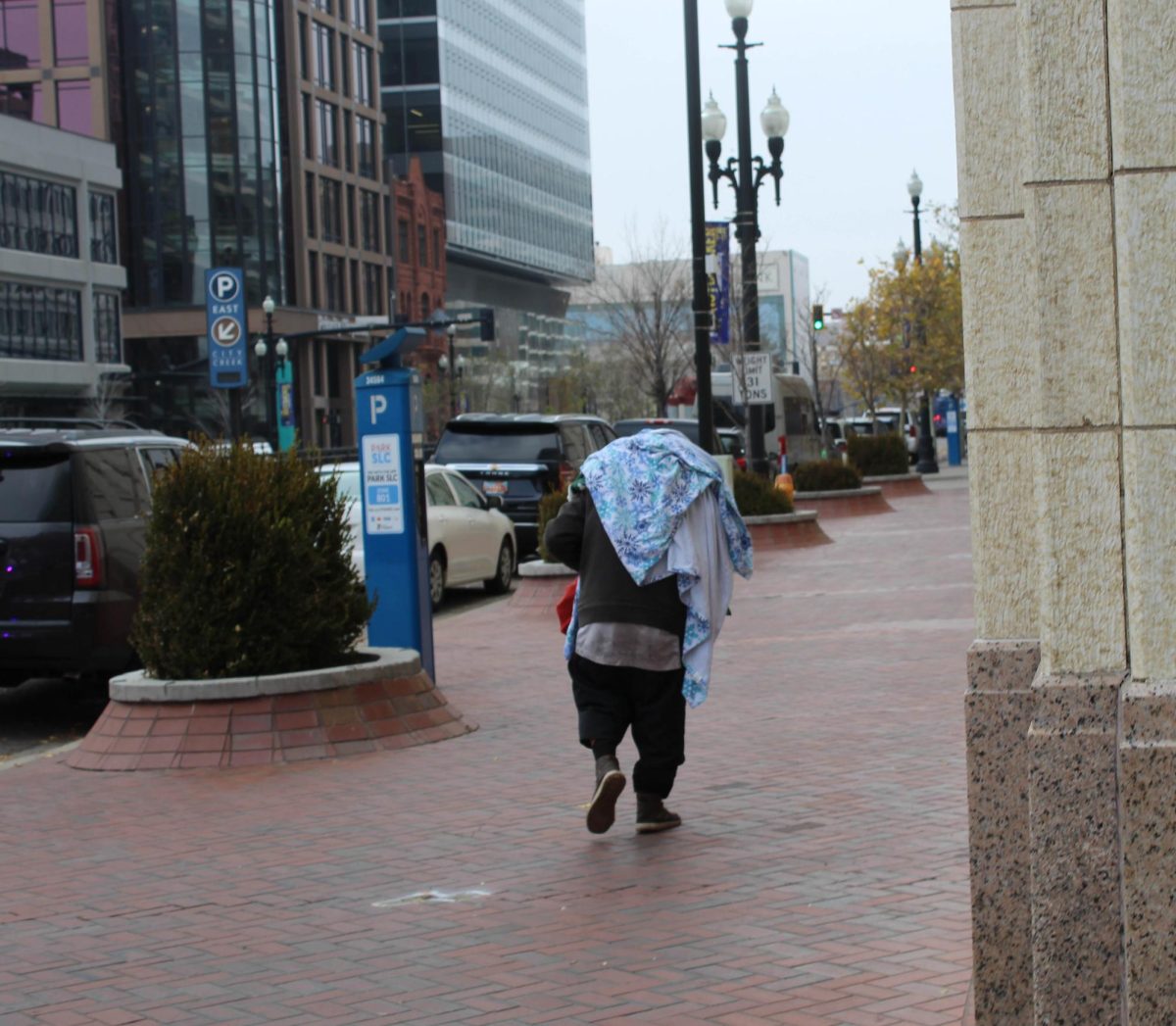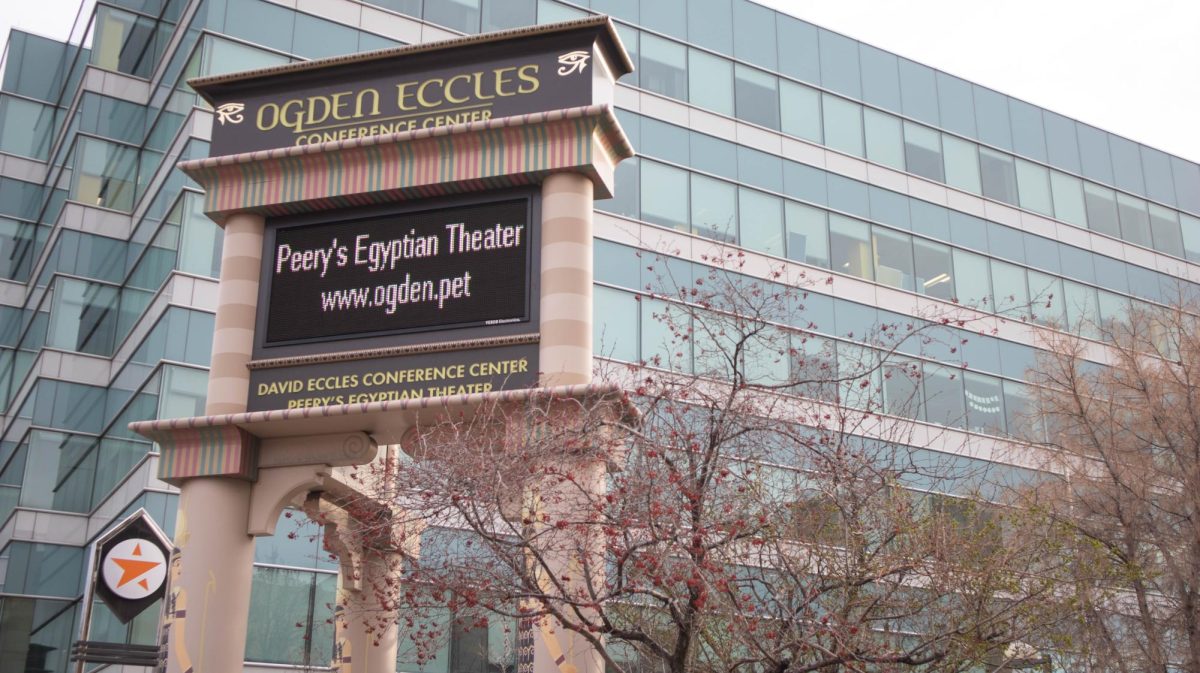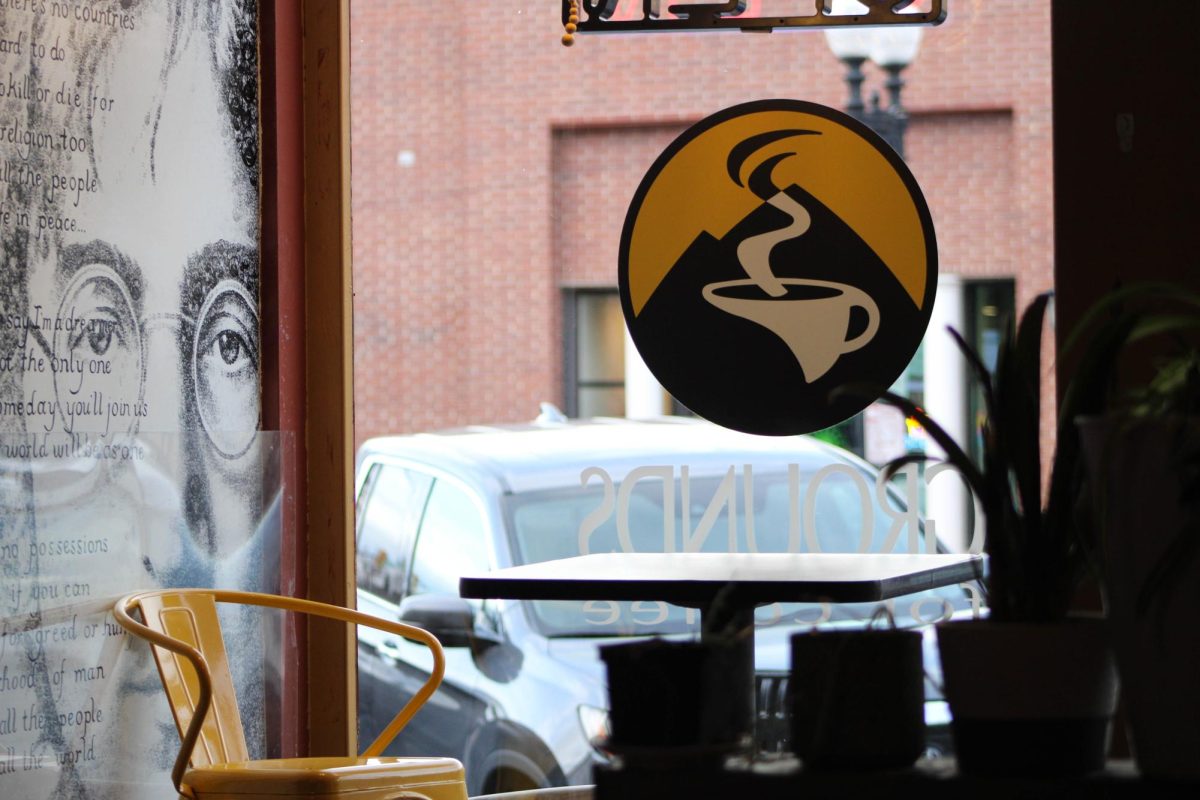Business professors discussed the issues of capitalism in a panel on Thursday at Weber State University.
Many questions were asked during the discussion. Lonald Wishom, vice president of diversity at WSU, asked most of the questions as host of the event. He said they were trying to keep the topics broad.
 [/media-credit]
[/media-credit]“We try to encourage for students to do research themselves,” Wishom said.
A lot of different topics were discussed such as free market, the middle-class problem, big companies operating in small countries and socialism. Utah was described as economically different from the rest of the United States. Terrence Bride, a member of the panel, said that in Utah, there is a different culture.
“A lot of folks who do good economically are doing good because they work hard,” Bride said.
Free market is also having an impact on not just the United States economy, but the global economy, according to panel members.
Michael Stevens, another panel member, said that the global impact of free market is running rampant.
“Free markets who work toward efficiency don’t exist,” Stevens said.
One issue that was discussed was the Shell Oil conflict in the Niger Delta. A video was shown, explaining how Shell was accused of paying off the militia to stop the protesting of drilling on the residents’ land. One woman described being shot in the arm and having it cut off by the militia, although she was peacefully protesting.
The oil company drilled through farmland and other populated areas in Nigeria. People were shot if they were seen protesting. Nancy Haanstad, a panel member, said that several of the multinational corporations operate in some of the smallest areas.
“It was non-governmental organizations who raised a cry that got the United States attention,” Haanstad said.
This raised a question as to whether indigenous people are treated right.
Jeffery Steagall, also a panel member, said that these types of companies and firms are huge players economically in other countries.
Socialism was brought up as a rising issue in the United States. Stevens said that WSU is socialism at its finest.
“Americans love socialism. They’re just in denial,” Stevens said.
With all of these rising issues, including a brief mention on the concern of immigration, a question was raised: what will the United States economy be like in the future?
“Twenty years from now, the United States isn’t going to be the dominant country in the world,” Steagall said. “We may not be the country anybody will want to come to.”
Some questions asked by a couple of students in attendance were discussed. Kurt Kensler joined the discussion as part of his Business 1010 requirement and said he learned a lot.
“It was good to come and evaluate and learn what’s going on with the economy,” Kensler said. “The thing I got out of it was how a capitalistic economy really does benefit.”
Although Wishom said the turnout was “pretty good,” he said he wanted to see the whole event filled with people.
“We need to become more civically engaged,” Wishom said.












